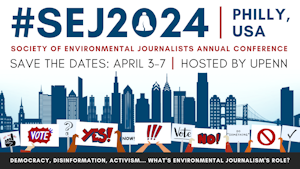SEJournal Online is the digital news magazine of the Society of Environmental Journalists. Learn more about SEJournal Online, including submission, subscription and advertising information.
Environmental journalists can find important stories using data about lobbyists registered to work for foreign firms and governments.
Such lobbyists are required to register under the Foreign Agents Registration Act (FARA), and the Sunlight Foundation and other groups have compiled some of the information into a searchable online database called the Foreign Influence Explorer.
FARA, first passed in 1938, is at its heart a disclosure law. The variety of environment and energy stories suggested by FARA data is extensive. FARA agents work in this country to advance the political interests of entities such as these:
- Saudi Arabia and other oil/gas exporters and petroleum interests
- Rongelap Atoll, part of the Marshall Islands impacted by U.S. nuclear testing
- Alberta, Canada, which hopes the U.S. will allow the Keystone XL pipeline to be built
- The American Palm Oil Council, a trade group representing an industry accused of unsustainable deforestation in places like Malaysia
- Carnival Corporation, a global cruise company trying to bolster its sustainability image
- China, on whose solar panels the U.S. has just imposed steep new anti-dumping tariffs
- The Institute of Cetacean Research, under whose auspices Japan continues whaling contrary to international treaty.
Other groups collaborating with the Sunlight Foundation on the Foreign Influence Explorer project include the Center for Responsive Politics and the Project on Government Oversight (POGO).
While the database may be a starting point for finding stories, it can hardly be the endpoint. Extensive reporting is needed to flesh out the clues it offers.
POGO recently posted a story noting that loopholes, filing failures, and lax Justice Department enforcement limit the quality and completeness of collected data.
- "Loopholes, Filing Failures, and Lax Enforcement: How the Foreign Agents Registration Act Falls Short," Project on Government Oversight, December 16, 2014, by Ben Freeman and Lydia Dennett.
















